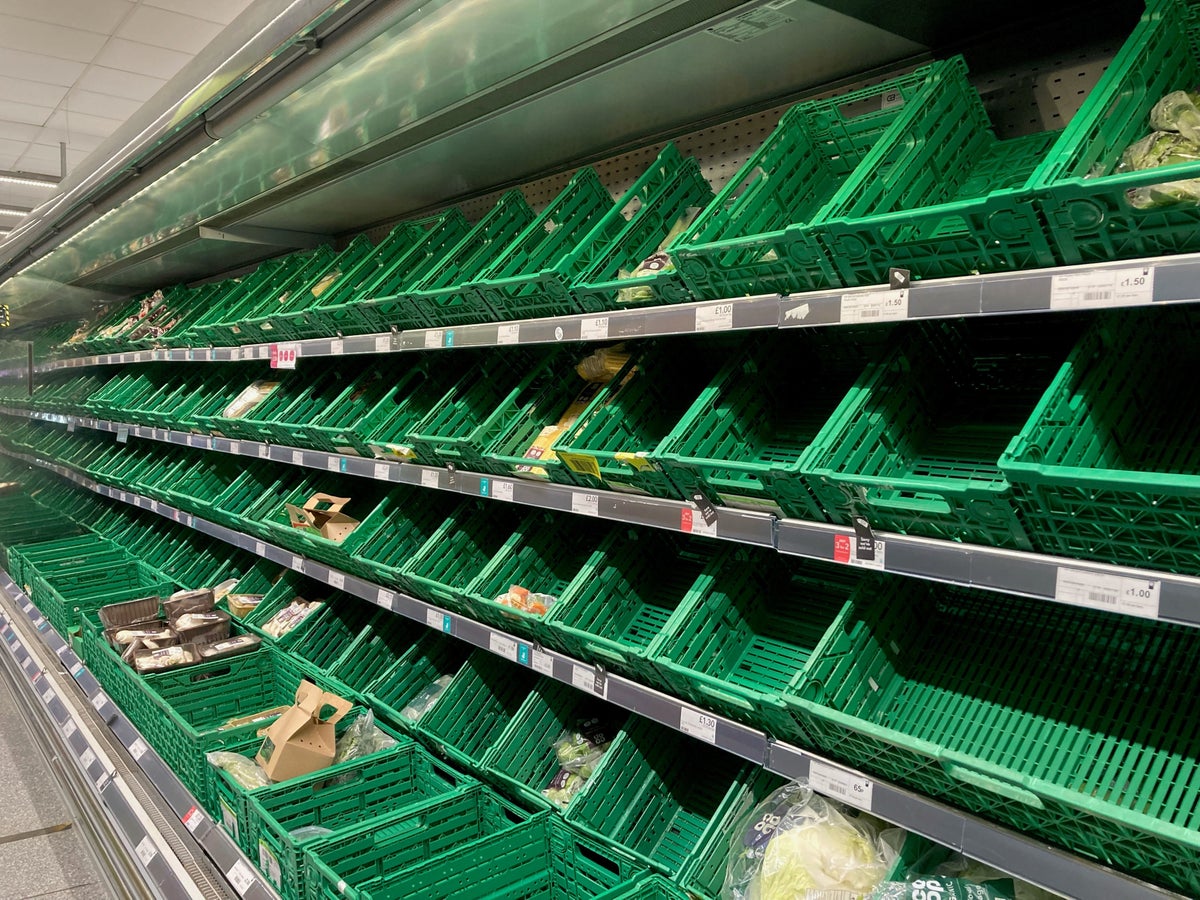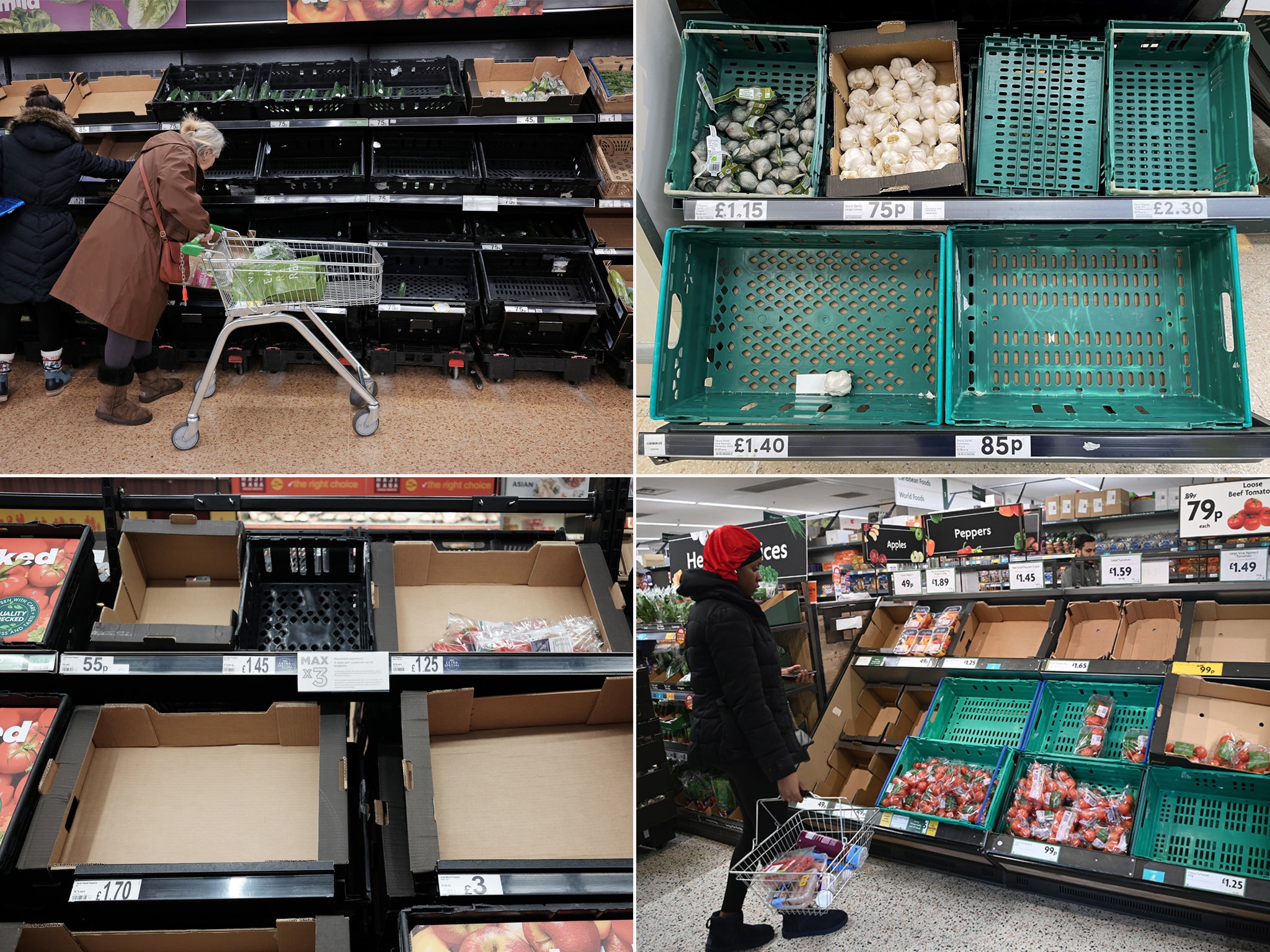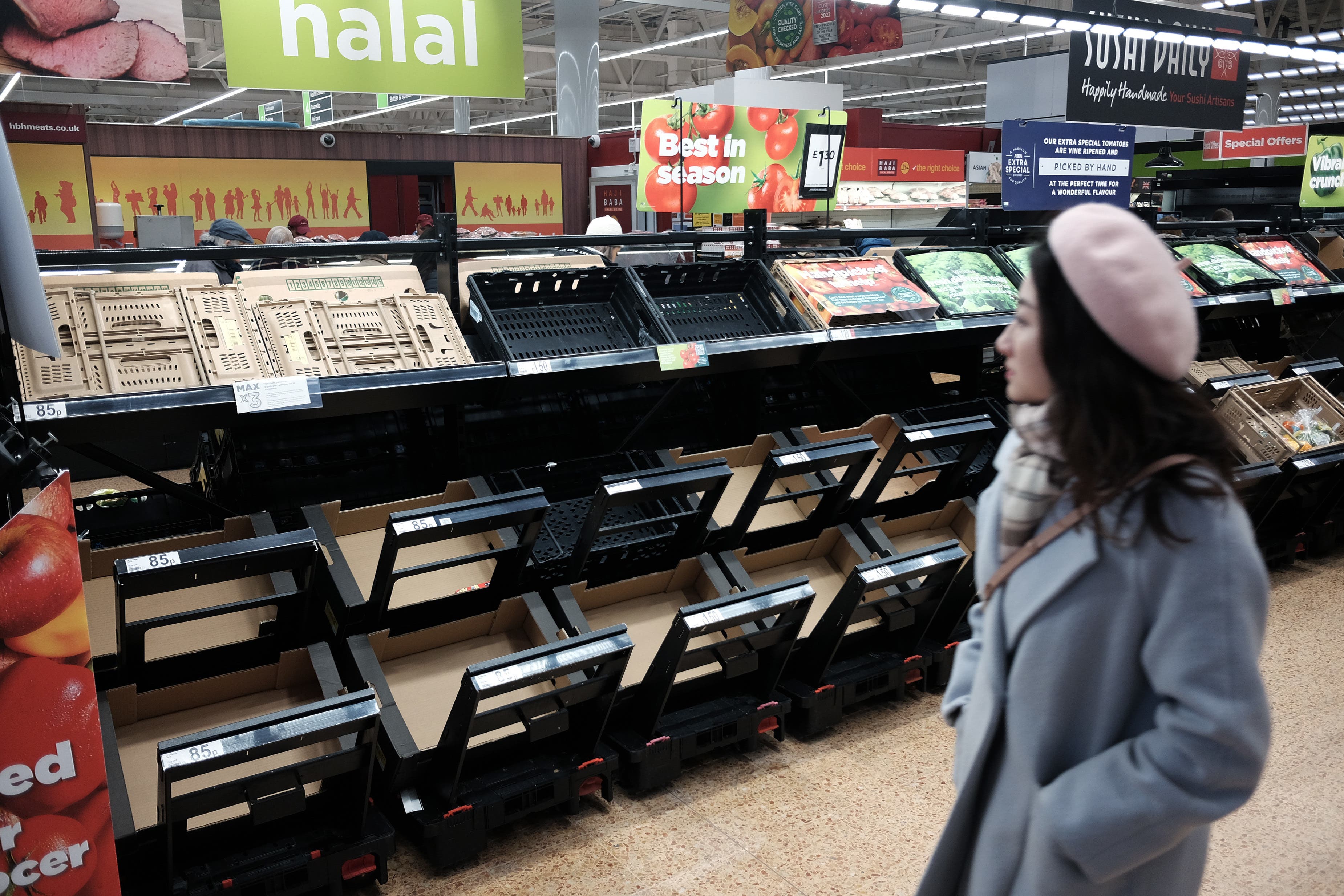
New Brexit red tape on EU imports could push up food prices and see more shortages in the supermarkets, industry bosses fear.
Food sector leaders are worried that port authorities are unprepared for the implementation of a series of checks, including health certifications on some animal, plant and food products from the EU, that are set to be phased in from October 2023 under Boris Johnson’s exit deal with Brussels.
New fees on goods coming into Britain from the EU will also add “hundreds of pounds” to the cost of importing each lorry-load of produce, business leaders told The Independent – a burden that could see some small firms “struggle to survive”.
The British Retail Consortium (BRC), which represents Britain’s biggest supermarkets, is concerned that the next wave of post-Brexit bureaucracy will see disruption at Dover and other ports, which could in turn lead to gaps in fruit and vegetables on the shelves.
Andrew Opie, the BRC’s director of food and sustainability, told The Independent that the extra checks could hit supply by delaying deliveries, and could also push up food prices as businesses pass on the additional costs to shoppers.
He said extra costs “are always an issue when we are tackling inflation”, but warned that “the main impact [of checks] could be on availability [of goods] if there is disruption at the ports”.
Mr Opie added: “In the autumn we increase imports of fresh produce from Europe that has a short shelf life, so it is imperative the system works well from day one to avoid impact on customers.”
Supermarkets are urging the government to provide ports with as much support as possible to prepare for the new checks. “Unfortunately, there is a cost – that was an inevitable consequence of Brexit,” said Mr Opie.
The retail expert added: “The key focus, however, must be getting European supply chains and UK government checks ready for October, to avoid disruption at our ports.”
Mr Opie will apprise peers of the ongoing post-Brexit problems for the food industry when he appears at the House of Lords committee hearing on the Northern Ireland protocol on Wednesday.
The warning comes after severe shortages of tomatoes, peppers and other salad vegetables earlier this year forced Britain’s major supermarkets to restrict sales, with photos of empty shelves mocked by people living in Europe.
Amid fears that shortages could become even more common, the government has warned business bosses that new checks on imports from the EU will add around £400m a year in extra costs – which is down from an initial estimate of just over £800m.

Nick Allen, chief executive of the British Meat Processors Association, told The Independent that the extra burden of new paperwork and fees will see some small, specialist importers “struggle to survive”.
“What we’ll see is a decline in choice, because some of the smaller firms importing specialist products – bacon, ham, cheeses – that part of the business will fall by the wayside. Some will have to change their business model to survive,” he said.
Mr Allen – who wants a new veterinary standards deal to be established with Brussels in order to scrap the required health checks on goods – added: “Some exporters in the EU won’t bother to send stuff here because they will find other markets.”
Food sector chiefs have been told that inspection fees at ports will be between £23 and £43 for each batch of goods. But getting the extra health certification paperwork could run into “hundreds of pounds” for each lorry-load of produce, one food sector leader told The Independent.
Mr Allen said suppliers will have to pass on some of those extra costs – meaning higher prices in shops. “It will add to food inflation. At a time when it’s real struggle for families, it won’t make things any easier,” he said.

As well as the new checks starting in October, physical checks on agricultural food imports are set to begin in January 2024 before new safety and security declarations for all imports from Europe come into force next October.
The government has said its new “border target operating model” – which will include the digitisation of paperwork and a “trusted trader scheme” aimed at reducing checks – should ease some of the extra costs to business by around £400m a year.
Former Sainsbury’s boss Justin King said earlier this year that the food sector had already been “hurt horribly” by Britain’s departure from the EU, even before the new checks are due to come into effect.
Mr Allen said: “The general feeling in the food sector is the ports are not ready. They’ve got quite a bit of work to do. So it could add to delays. We’re going in at the deep end in October.”

Companies outside the food sector are also worried about more widespread red tape on imports starting in 2024. Tamara Cincik, founder of the Fashion Roundtable think tank, warned that many clothing firms “cannot absorb the extra costs of even more checks”.
Ms Cincik, a member of the UK Trade and Business Commission, said: “Instead of new checks, we need pragmatic solutions to the challenges facing UK trade, and the removal of trade barriers between the UK and our largest market.”
Research by the Federation of Small Businesses shows that nearly one in 10 of the UK firms that used to import or export have stopped doing so in the past five years. Tina McKenzie, the group’s policy chair, pleaded with the government to “minimise costs and disruption” from the coming changes.
It comes as the UK Trade and Business Commission, alongside the British Chambers of Commerce and other representative bodies, prepares to host a “trade unlocked” conference in Birmingham in June to discuss red tape and ways to help shape policy.
A Cabinet Office spokesperson said that moves to try to minimise disruption from checks “will transform the UK’s border controls”.
They said: “It will create a new world-class system to provide protection from security and biosecurity threats, while preventing delays at the border through a reduction in the need for physical checks, and by ensuring that checks take place away from ports where this is needed, to allow traffic to flow freely.”
The spokesperson added: “We are now in a period of engagement with industry, so we can hear their views on our initial proposals and work with them to explore the costs of implementing the new model.”







